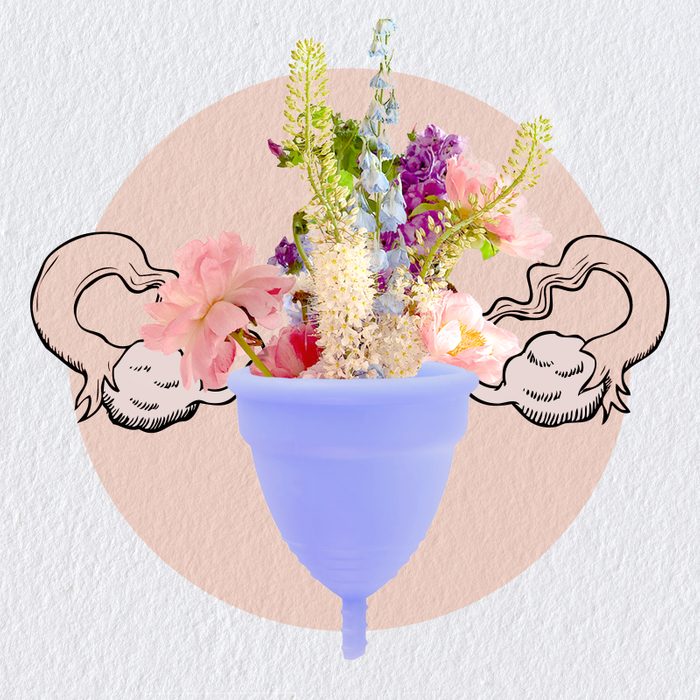
What are the benefits of sustainable period products?
According to research estimates that include a 2021 population health study, the average woman uses more than 11,000 tampons in her lifetime—which the UK’s London Assembly has stated can generate up to 400 pounds of waste. This is because traditional period products like pads and tampons (plus their applicators, packaging and wrapping) contain a significant amount of plastic and non-compostable materials, which “can take 500 to 800 years to decompose,” says Abi Degg, a sexual health and contraception nurse at SH:24, a nonprofit sexual health service in the UK. (A 2018 study backs up Degg’s point.) “With the current state of the climate emergency,” the nurse says, “this has been a major reason for people to move to sustainable period products.”
For many period-havers, the switch comes with some serious eco-effects. One study found that sustainable period products like reusable menstrual cups have an environmental impact that’s just 1.5% of their disposable counterparts. Sustainable period products also offer a considerable financial benefit to women—this same study estimates that a menstrual cup saves women 90% on period expenses annually.
Sustainable period products may actually be healthier for you, too. A 2020 study found some troubling chemicals in feminine products sold throughout the US, including endocrine-disrupting chemicals like parabens and phthalates. “In addition, fragrance and antibacterial agents can be included,” Degg says, which can disrupt your vaginal flora and lead to irritation, dermatitis, thrush, or bacterial vaginosis.
The Most Breathable Women’s Underwear You Can Buy, According to Gynecologists
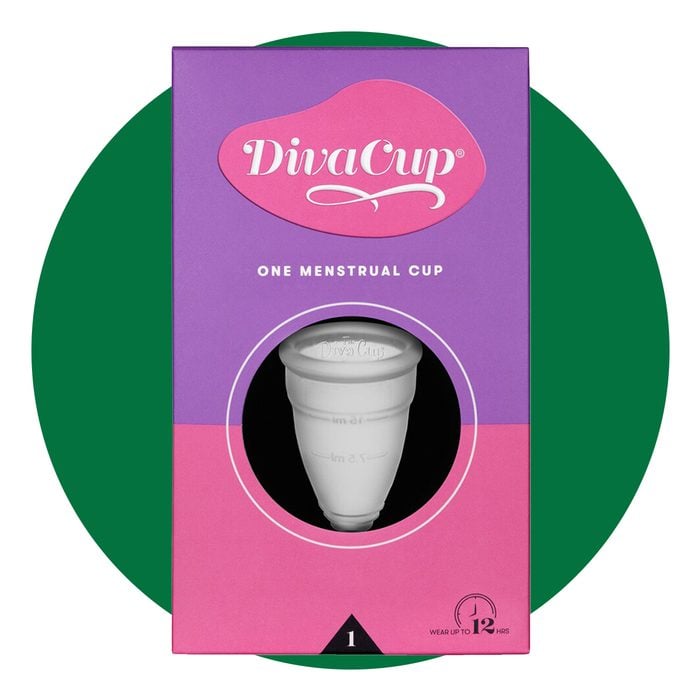
Menstrual cups
Reusable period cups have been around for decades—but today, there are more options than ever for women to find the perfect fit for them based on a cup’s size, shape, flexibility and firmness.
“DivaCup is probably the most recognizable brand and has many size options,” says Monte Swarup, MD, FACOG, board-certified in OB/GYN and founder of the leading vaginal health information site, Vaginal Health Hub. More than 26,000 Amazon reviewers agree that the DivaCup is a must-have, thanks to factors like its cost-savings, comfort, durability, and above all, effectiveness. “I go to my normal yoga classes and have no fear that I might bleed on my leggings!” writes Amazon reviewer Nicole Miner. “You will never want to go back.”
But with so many options out there, it can take some trial and error to find the most comfortable, reliable cup. “There are online quizzes [like this one] women can take to help them figure out which cup might be the best for them,” says Jill Purdie, MD, OB/GYN, and medical director at Northside Women’s Specialists, part of Pediatrix Medical Group. She notes that it “will take some practice to get used to inserting and removing the cup,” but you can expect less irritation, fewer trips to the bathroom and less odor.
Here’s what else experts want you to know about period cups—plus more of their favorite menstrual cup brands
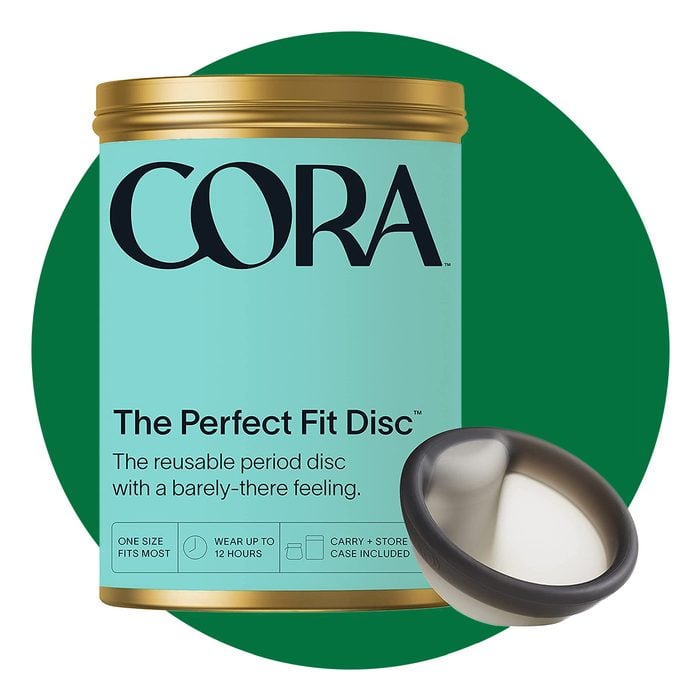
Menstrual disc
“Ladies… [a menstrual] disc is life-changing,” writes Amazon reviewer Andumbrokhani. She explains that she’s a former menstrual cup user but experienced uncomfortable pressure on her bladder—and that the cup left her prone to leaks. “I don’t dread my period nearly as much anymore,” thanks to the Cora Perfect Fit Disc.
Experts agree. “My favorite reusable product right now is a menstrual disc made of silicone,” says Melisa Holmes, MD, FACOG, OB/GYN, CEO of Girology and co-founder of the Period Education Project. “Most people find it easier to use than a cup,” Dr. Holmes says. “Even though it looks bigger, it just doesn’t require the same insertion and removal learning curve as a cup.” Plus, because they sit right at the base of your cervix (like a diaphragm), they’re ideal for mess-free period sex.
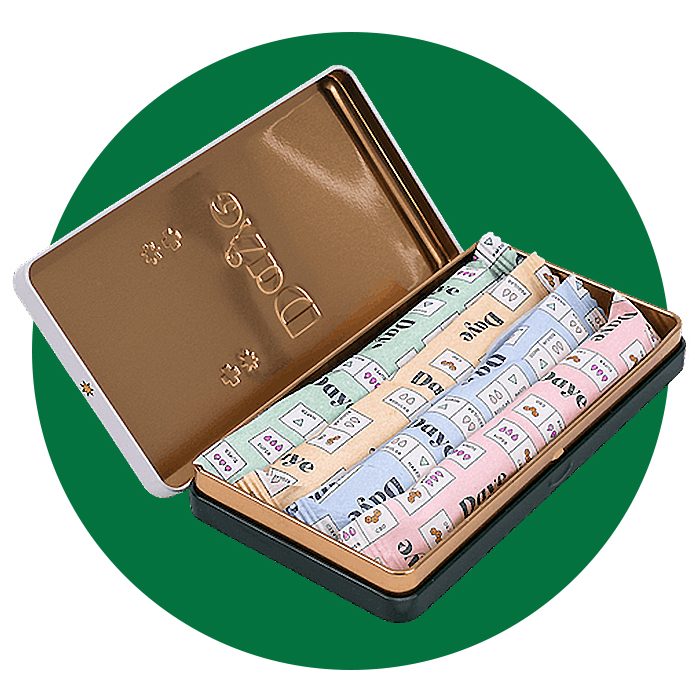
Sustainable tampons
Reusable products aren’t for everyone, Degg says. “For instance, for some people, cups can be tricky and uncomfortable.” Let’s face it: periods are tough enough, so it’s important to prioritize your comfort. And innovative tampons and pads are helping women live a little bit more eco-consciously while staying inside their comfort zone.
“Daye organic tampons are carbon neutral, housed in a sugarcane applicator and wrapped in a flushable, ocean-safe wrapper,” says Melanie Bone, MD, an OB/GYN and member of the gynecological health company’s medical board. (Plus, there’s an optional CBD coating to help relieve the worst of your menstrual cramps.) Dr. Bone also emphasizes the vaginal health benefits of sustainable period products. “It’s important to use plastic- and pesticide-free tampons, as the vaginal mucosa is one of the most absorbent organs in the human body,” she explains, which “provides a direct link into the bloodstream.” The National Cancer Institute defines mucosa as “the moist, inner lining of some organs and body cavities.” Dr. Bone suggests that in reference to the female reproductive organs, this means anything you put “up there” can absorb into the bloodstream and make its way throughout your system. So, yes: the use of traditional tampons and pads could lead to your body’s absorption of these chemicals, which may ultimately contribute to illness.
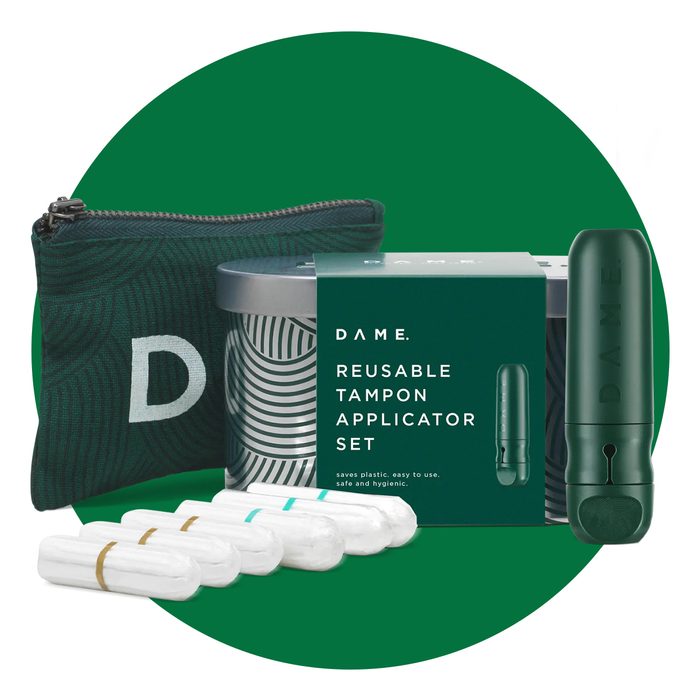
Reusable tampon applicator
“I find that some organic brands have applicators that just don’t work or get stuck,” says Melissa Boyd, a NASM-certified personal trainer and Tempo coach who helps women strategize fitness around their menstrual cycle. That’s why applicator-free tampons like the Cora Comfort Fit Organic Tampon can be a good option.
But if you aren’t a fan of going applicator-free, that’s where Dame steps in. The UK-based company invented the world’s first reusable tampon applicator that’s antimicrobial, fits all tampon sizes and lasts for more than 3,000 uses. So, so smart.
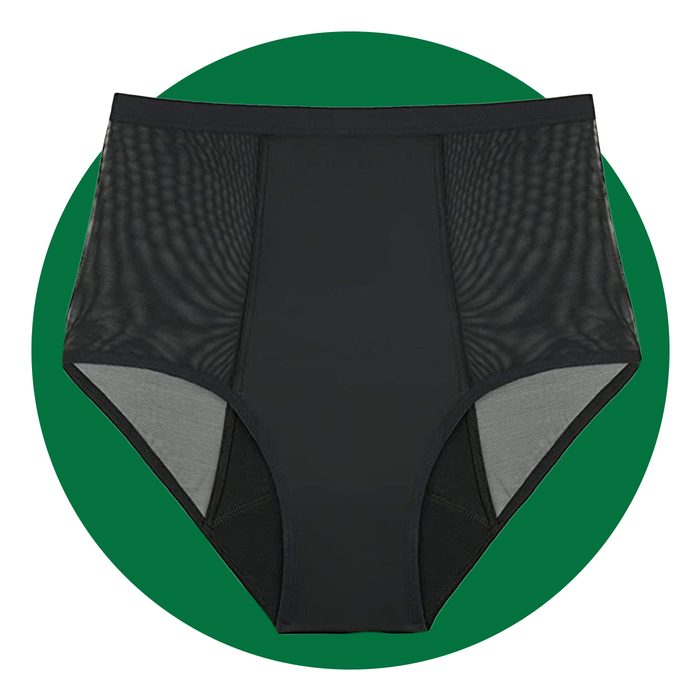
Period underwear
“At first, I couldn’t imagine wearing a pair, but these are period support game changers,” Boyd says. But these ultra-absorbent, easy-to-clean underwear are comfier than ever, “whether you’re wearing them at night or as a backup at the gym.”
Boyd and Dr. Holmes both recommend Thinx period underwear, which come in a wide range of cuts and styles, ranging from high-wasted to thong varieties. “These are cute and absorbent but also thin enough that it doesn’t feel like a diaper—which is an issue I had with other brands,” writes user Monroe.
I Tried Period Underwear for a Week, and Here’s What Happened
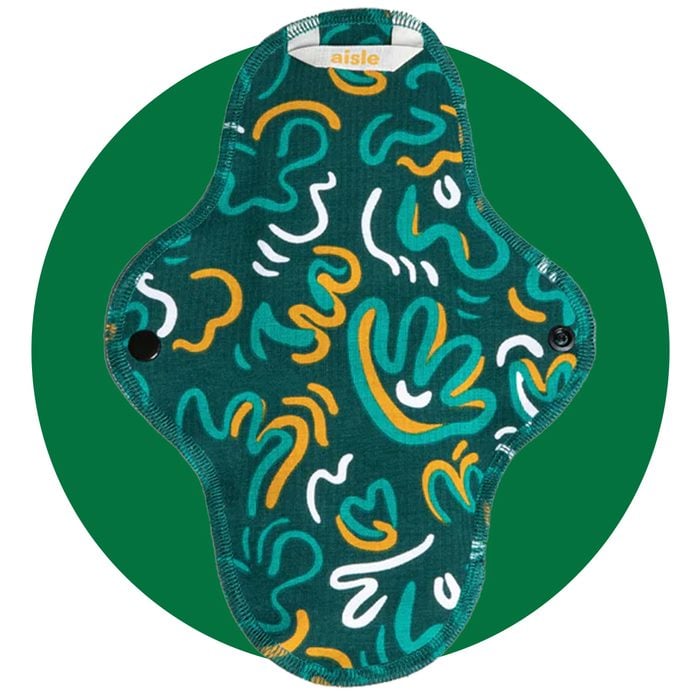
Reusable period pads
Sustainable period pads are made of soft, eco-friendly fabrics that are gentler on the skin—and most avoid the use of any chemicals and fragrances. “This can reduce dryness, rashes, and potential itching,” says Dr. Swarup, adding: “Maxi Pad by Aisle gets lots of good feedback from patients.” She suggests that’s because they don’t leak or bunch throughout the day, and are good for sensitive skin.
For more wellness updates, follow The Healthy on Facebook, Instagram, and Twitter. Keep reading:
